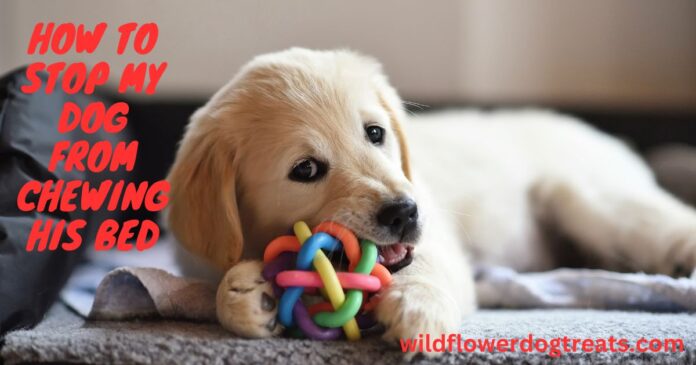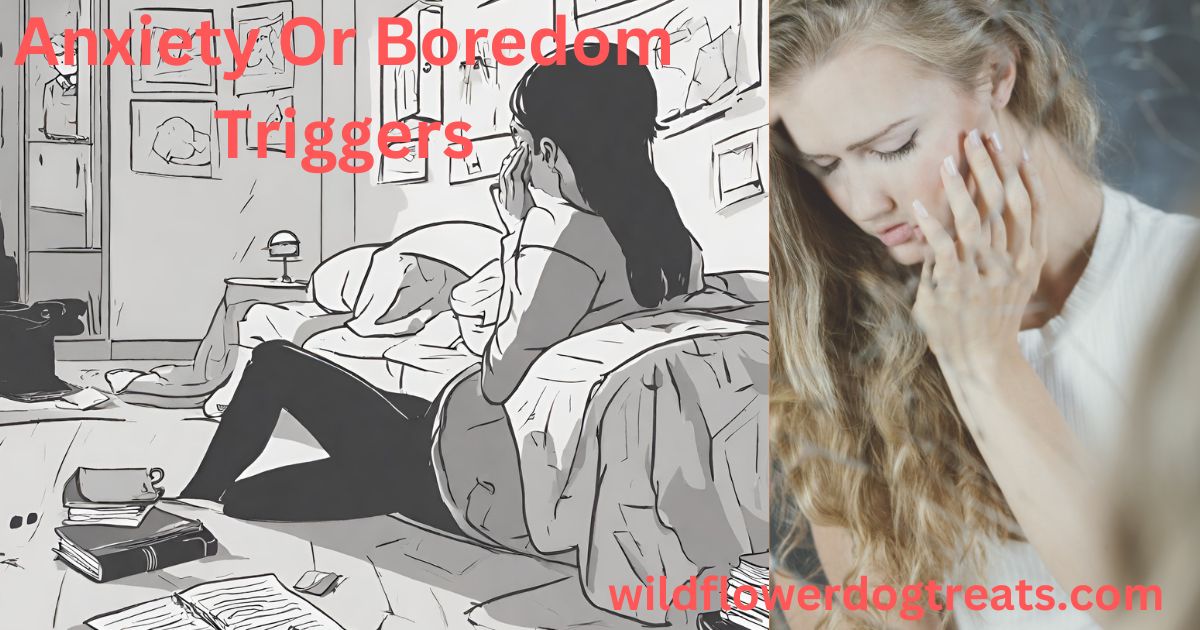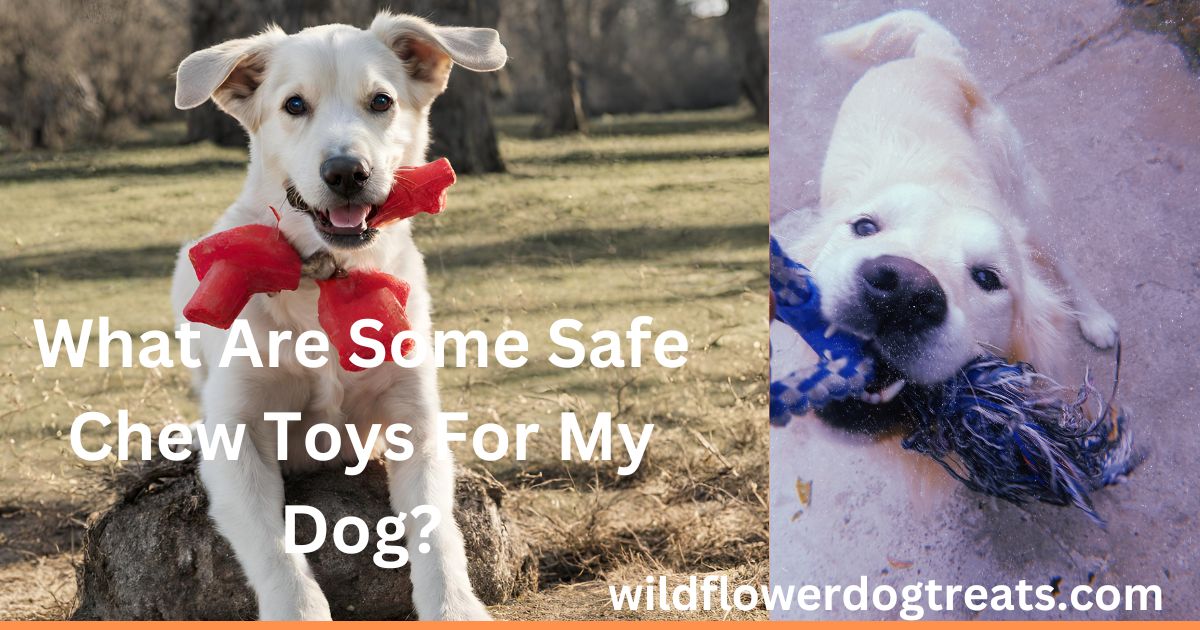To stop your dog from chewing his bed, provide plenty of chew toys and exercise to redirect his behavior. It’s essential to set boundaries and give positive reinforcement when he chews on appropriate items.
Additionally, you can use deterrent sprays or bitter apple to discourage biting on the bed. Consistency and patience are key in training your dog to stop chewing on his bed. Introducing preventive measures and providing appropriate outlets for your dog’s chewing behavior can help address the issue effectively.
It’s important to understand the underlying reasons for your dog’s habit and address any potential health or anxiety issues. Implementing consistent training and positive reinforcement will help redirect your dog’s chewing behavior and prevent damage to his bed. By following these strategies, you can effectively stop your dog from chewing his bed and create a more positive and harmonious relationship with your pet.
Canine Behavior: Why Dogs Chew
Understanding why dogs chew is crucial in addressing this behavior. It’s important to note that chewing is a natural behavior for dogs and serves various purposes. By comprehending the reasons behind this behavior, dog owners can effectively prevent their pets from chewing their beds excessively.
Natural Instincts
Dogs have an innate instinct to chew, which is rooted in their biology. Chewing helps to keep their teeth clean and healthy while also offering mental stimulation. Puppies, especially, experience teething discomfort, which drives them to chew on objects to relieve the pain and aid in the loosening of baby teeth.
Anxiety Or Boredom Triggers
Anxiety and boredom can trigger a dog to chew on its bed. Dogs may resort to chewing as a coping mechanism in response to stress or separation anxiety. Additionally, lack of mental and physical stimulation can lead to boredom, prompting a dog to chew on items within its environment.
Age And Developmental Factors
The age and developmental stage of a dog can also influence their tendency to chew. Puppies are more prone to chewing as they explore their surroundings and alleviate teething discomfort. On the other hand, adult dogs may chew out of habit, particularly if chewing behavior was not addressed during their formative years.
Observing Behavioral Patterns
Observing your dog’s behavioral patterns is crucial in addressing the issue of chewing his bed. By understanding the common chewing occasions, specific environmental stimuli, and emotional cues and reactions, you can effectively devise a plan to stop your dog from engaging in this destructive behavior.
Common Chewing Occasions
Dogs may often chew their beds during specific times of the day, such as when they are left alone, bored, or seeking attention. Identifying these patterns can help determine the underlying reasons for the behavior.
Specific Environmental Stimuli
Environmental triggers, such as the presence of other pets, loud noises, or changes in routine, can lead to your dog seeking relief by chewing on his bed. Recognizing these stimuli is essential in preventing the behavior from occurring.
Emotional Cues And Reactions
Your dog’s emotional state, including anxiety, stress, or frustration, can manifest in the form of chewing. Being attuned to your dog’s emotions and reactions can provide insights into the root cause of the behavior, enabling you to address it effectively.
Health Risks And Safety Concerns
Chewing on their bed can pose significant health risks and safety concerns for dogs. Many pet owners may overlook the potential dangers associated with this behavior, but it’s essential to address them promptly to ensure your furry companion’s well-being and safety.
Potential Ingestion Hazards
Dogs who chew on their beds face the risk of ingesting various materials such as fabric, stuffing, or other components of the bed. This can lead to gastrointestinal complications, blockages, or even poisoning if the materials are toxic. Additionally, ingestion of foreign objects may require surgical intervention, causing undue stress and potential health risks for the dog.
Effects On Canine Dental Health
Constant chewing on their bed can result in dental issues for dogs, including broken or fractured teeth, gum injuries, and misalignment. This not only causes discomfort but may also lead to infections and oral health problems, impacting the overall well-being of the dog.
Financial Implications And Bed Replacement Costs
Chewing behavior can lead to repeated replacement of dog beds, incurring ongoing costs for pet owners. Additionally, the potential health issues and dental treatments resulting from this habit can add up to significant financial burdens. By addressing the root cause of this behavior, pet owners can avoid these unnecessary expenses and ensure their dog’s safety and well-being.
Positive Reinforcement Techniques
Positive reinforcement techniques are an effective and humane way to train your dog to stop chewing his bed. By rewarding desirable behavior, you can encourage your dog to choose appropriate chew toys and engage in structured exercise to relieve anxiety and prevent destructive chewing habits.
Choosing Appropriate Chew Toys
When addressing your dog’s chewing behavior, it’s essential to offer suitable alternatives. Select durable chew toys that are specifically designed for chewing to redirect your dog’s urge to chew onto appropriate objects. Look for toys made from rubber or nylon that can withstand heavy chewing and provide sensory stimulation. Ensure the toys are of appropriate size to avoid any choking hazards.
Structured Exercise And Mental Stimulation
Providing your dog with sufficient physical activity and mental stimulation can help reduce anxiety and prevent boredom-related chewing. Incorporate regular exercise such as daily walks, interactive play, and training sessions to keep your dog physically and mentally engaged. Utilize puzzle toys and interactive games to provide mental stimulation and prevent boredom-induced chewing.
Managing Separation Anxiety
If your dog’s chewing behavior is linked to separation anxiety, it’s essential to implement strategies to alleviate their distress. Gradually accustom your dog to short periods of alone time and provide comforting items such as clothing or blankets infused with your scent. Consider seeking professional training or consulting with a veterinarian to develop a comprehensive plan to manage separation anxiety and reduce destructive chewing habits.
Safe And Effective Bed Alternatives
When it comes to preventing your dog from chewing his bed, finding safe and effective bed alternatives is crucial. Not only will this help protect your dog from potential harm, but it also ensures they have a comfortable and durable resting space. Here are some options to consider:
Protective Measures For Existing Beds
If your dog has a favorite bed that they are constantly chewing on, you can take protective measures to extend its lifespan. Investing in a durable chew-resistant cover can be a smart move to protect the bed from your dog’s teeth. Additionally, providing a selection of chew toys or a soft blanket can help redirect their chewing behavior away from the bed.
Professional Training And Consultation
Seeking professional training and consultation can provide valuable solutions to prevent your dog from chewing their bed. Working with a certified dog trainer or behaviorist can help address any underlying issues causing the chewing behavior. They can also provide guidance on positive reinforcement techniques and establishing clear boundaries to discourage bed chewing.
Overview Of Dog-friendly Repellents
Utilizing dog-friendly repellents can be an effective way to deter your dog from chewing their bed. Natural repellents such as citrus-based sprays can create an odor unpleasant for dogs, deterring them from chewing on their bed. Bitter-tasting sprays can also be applied to the bed to discourage chewing behavior without causing harm to your pet.
Frequently Asked Questions For How To Stop My Dog From Chewing His Bed
How Can I Stop My Dog From Chewing His Bed?
To prevent your dog from chewing his bed, provide plenty of chew toys and exercise to keep him mentally and physically stimulated. Consider using a bitter apple spray on the bed to deter chewing behavior, and offer positive reinforcement when your dog chews on appropriate items.
Why Does My Dog Chew His Bed?
Dogs may chew their beds due to boredom, anxiety, or teething. It can also be a sign of an underlying health issue. Providing mental stimulation, exercise, and addressing any potential underlying medical concerns can help reduce this behavior.
What Are Some Safe Chew Toys For My Dog?
Choose durable chew toys made from rubber or nylon that are designed for heavy chewers. Bully sticks, Kong’s and rope toys can be safe and engaging options. Avoid toys that can easily splinter or break apart, as these can pose a choking hazard.
Can I Train My Dog To Stop Chewing His Bed?
Yes, you can train your dog to stop chewing his bed by redirecting the behavior to appropriate chew toys, using positive reinforcement, and providing mental and physical stimulation. Consistency and patience are key in helping your dog develop new, positive chewing habits.
Conclusion
To wrap it up, addressing your dog’s chewing behavior is crucial for their well-being. By understanding the underlying causes and employing the techniques mentioned, you can effectively stop your dog from chewing his bed. Remember, patience and consistency are key in this process to ensure your dog’s comfort and safety.





